美国网友问:为什么不在中国崛起前彻底征服它?以绝后患?
今天的世界格局,正在发生了剧烈的变动。
曾几何时以美国为首的霸权主义,征服了大半个世界,他们的航母嚣张跋扈,所到之处无不是生灵涂炭。
美国为了垄断石油,不惜挑起战争,让波斯湾地区陷入不休的争斗,而它们自己则充当着“军火商”的角色,四处兜售武器发昧心财。
在过去的一个世纪里,不管是冉冉升起的亚洲,还是遍地饥饿的非洲,只要美国政府愿意,就没有它们插手不到的地方。
白宫的那群政客,为达目的可以不择手段,小到暗杀大到颠覆,全都是手到擒来。
当中国这头东方巨龙再次苏醒之时,一些美国网友开始频频在美版知乎Quora上发问:美国政府为何不在中国崛起前彻底征服它,以绝后患?
对于这个问题,美国的高层人士和专业分析家给出了各自的看法。
其中有些观点读来令人耳目一新,印象深刻,今天就让我们一同看一看。

问题:美国为什么不征服中国?

美国前国会助手,联邦雇员 布拉德伯里的回答
I feel like there are four reasons:
ONE-- This is going to come as a surprise to hear to many of you but the USA generally loathed European style Imperialism. This statement might leave some of you cross-eyed and there's a fine hair to split here that is worthy of digging in to another time. Per American attitudes: The USA was a colonized nation who threw off the shackles of an imperious overlord. We were the underdogs who beat the Goliath and secured our independence. The USA simply didn't like that kind of imperialism.
And here's where the hair-splitting gets interesting. The USA -- of course -- conquered the land within its territory (belonging to the Natives). Later on it invaded Japan but never attempted to conquer the Islands. The US simply wanted open markets for trade (which is a window into the American imperial mentality and sets the framework for the next century). The USA did assume control over Cuba, Puerto Rico, Philippines, and Guam after clobbering those Flamenco Dancing Spaniards, but Cuba was given independence in 1902 (and meddled with, but that's another story for another time).
The USA did conquer the Kingdom of Hawai'i and did invade Colombia . . . er, Panama to build the canal, but again, all of these (admittedly) really hypocritical double-standards really did make sense to the US back in the "White Man's Burden" days. I'm not legitimizing it, but the USA truthfully saw itself as the dismantler of European Empires and the protector of the colonized nations of the Americas.
But here's a really big thing to remember: Americans absolutely loathed European imperialism. Various anti-imperial organizations and groups were founded. The US's really notable non-American Continent imperialism is the Philippines. The US liked having it as a base of operations and an economic outpost, but even that was a thorn in the side of the US government and (back when people cared about these things) it was a huge hypocritical statement while the USA was actively campaigning to get European colonial powers out of the Americas.
我觉得有四个原因:
第一 这会让你们中的许多人感到惊讶,但美国普遍厌恶欧洲式的帝国主义。这句话可能会让你们中的一些人眼花缭乱,这里有一根细毛要分开,值得下次再挖掘。根据美国人的态度: 美国是一个摆脱了专横霸主枷锁的殖民国家。我们是击败歌利亚并确保我们独立的失败者。美国根本不喜欢那种帝国主义。
这就是头发分裂变得有趣的地方。美国——当然——征服了其领土内的土地(属于土著人)。后来它入侵日本,但从未试图征服这些岛屿。美国只是想要开放的贸易市场(这是了解美帝国主义心态的窗口,并为下个世纪奠定了框架)。在击败那些弗拉门戈舞的西班牙人之后,美国确实控制了古巴、波多黎各、菲律宾和关岛,但古巴在 1902 年获得了独立(并受到了干预,但那是另一回事了)。
美国确实征服了夏威夷王国并入侵了哥伦比亚。. . 呃,巴拿马来修建运河,但同样,所有这些(诚然)非常虚伪的双重标准在“白人的负担”时代对美国来说确实是有意义的。我没有将其合法化,但美国真实地将自己视为欧洲帝国的瓦解者和美洲殖民地国家的保护者。
但要记住一件非常重要的事情:美国人绝对厌恶欧洲帝国主义。成立了各种反帝组织和团体。美国真正值得注意的非美洲大陆帝国主义是菲律宾。美国喜欢把它作为行动基地和经济前哨,但即便如此,这也是美国政府的眼中钉,而且(当人们关心这些事情的时候)这是一个巨大的虚伪声明,而美国正在积极竞选把欧洲殖民大国赶出美洲。
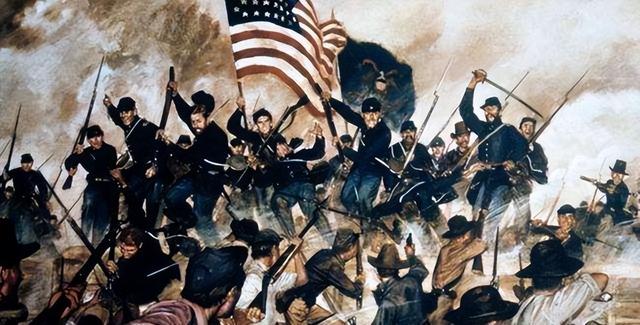
美国赶跑英国殖民者
TWO-- by the time the USA reached sufficient military and economic strength to effectively extend its influence overseas (no earlier than 1890 but more likely about 1900), China had been gobbled up by Europeans as spheres of influence. China proper was never really colonized the way Indonesia, Indochina or India were, but there were economic spheres of influence dominated by Japan, Russia, Germany, France and Britain. The US was sitting comfortably in the Philippines watching the Europeans scramble for China, smugly thinking that she was doing better by the Philippines.
第二——当美国达到足够的军事和经济实力以有效地将其影响力扩展到海外时(不早于 1890 年,但更有可能是 1900 年左右),中国已被欧洲人吞并为势力范围。中国本土从来没有像印度尼西亚、印度支那或印度那样真正被殖民过,但日本、俄罗斯、德国、法国和英国主导着经济势力范围。美国在菲律宾舒舒服服地看着欧洲人争夺中国,得意地认为菲律宾做得更好。
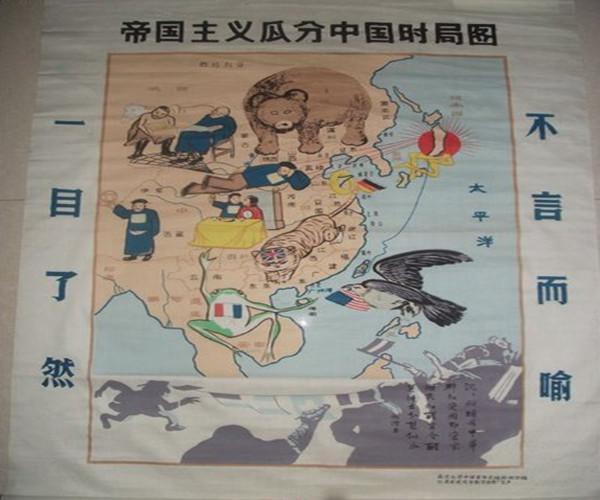
欧洲列强在华势力图
THREE-- The USA saw that European Empires were in their twilight. There was little doubt at the time that most European Empires were going to collapse within the century. The USA didn't want to spend its blooming years engaging in overseas empire-building. Having seen what Europeans invested and sunk into these empires, the USA preferred (here's this again) economic trade to enrich itself and the economic imperialism that came with it (which is cheaper to maintain and a shit-ton more profitable). And the USA was proved right. By the end of World War I, the cracks had set in and by the end of the Second World War, they'd all but collapsed.
第三——美国看到欧洲帝国正处于暮光之城。当时毫无疑问,大多数欧洲帝国将在本世纪内崩溃。美国不想将其蓬勃发展的岁月花在海外帝国建设上。在看到欧洲人投资并沉入这些帝国之后,美国更喜欢(又是这个)经济贸易来丰富自己以及随之而来的经济帝国主义(维持成本更低,利润更高)。美国被证明是正确的。到第一次世界大战结束时,裂缝已经出现,到第二次世界大战结束时,它们几乎都倒塌了。

美国的经济霸主地位
FOUR-- the USA had pretty much everything it needed at home -- frankly, there just wasn't a need to go looking for it anywhere. By 1890, the size and shape of the USA had solidified. The USA was the largest single economy (unless you count the entire British Empire). The USA was the world's largest industrial producer, largest agricultural producer and largest petrol producer. Moreover, the USA was largely.
第四——美国几乎拥有了它在家里需要的一切——坦率地说,没有必要去任何地方寻找它。到 1890 年,美国的规模和形状已经固化。美国是最大的单一经济体(除非你算上整个大英帝国)。美国是世界上最大的工业生产国、最大的农业生产国和最大的石油生产国。此外,美国在很大程度上人口不足,拥有大量的土地——就资源、农业和生活空间而言,足以满足国家对资源、农业和生活空间的需求(1900 年为 7600 万人,而今天为 3.15 亿人)。

美国丰富的自然资源

美国网友的回答
The United States tried many times and failed. The earliest incident was when America was actually the late comer in Europe bid to conquer China. This was named the “spheres of influence” where America tried desperately to be included in Europe’s combined occupation of the country. Because of their greed the European nations agreed to share occupation of China which led to resentment and greed (some nations thought they weren’t given enough territory) and that caused splintering which all fed into the world wars.
After the failure of the spheres of influence America’s next attempt was to set up a puppet regime. It poured support into the Kuomingtang and gave it ammunition and military training to help their struggles against Japan. What it counted on was that greed and the desire to rule China would let them control Chiang Kai-shek and his regime. What they didn’t understand was that yes Chiang was greedy and yes he did want to be king and rule China and he was so greedy that he would never let himself be under the control of America either. So it ended up the Kuomingtang just used as much of American support as they could but not to defeat the Japanese but to consolidate power in China in a bid to rule China first then take care of all the foreign entities like Japan and America.
Thanks to that greed the Kuomingtang fell out of favor in China very quickly leading to the Communists being named the ones that defeated the Japanese and saved China. That led to them winning the civil war and pushing the Kuomingtang to an isolated little island territory where America failed in their second attempt to conquer China.
美国尝试了很多次,都失败了。最早的事件是美国实际上是欧洲征服中国的后来者。这被命名为“势力范围”,美国拼命试图将其纳入欧洲对该国的联合占领。由于他们的贪婪,欧洲国家同意共同占领中国,这导致了怨恨和贪婪(一些国家认为他们没有得到足够的领土)并导致分裂,这一切都助长了世界大战。
在势力范围失败后,美国的下一次尝试是建立傀儡政权。它向国民党倾注了支持,并为其提供了弹药和军事训练,以帮助他们抗击日本。它指望的是,贪婪和统治中国的愿望会让他们控制蒋介石和他的政权。他们不明白的是,蒋是贪婪的,是的,他确实想成为国王并统治中国,而且他是如此贪婪,以至于他也永远不会让自己处于美国的控制之下。所以最终国民党只是尽可能多地利用美国的支持,但不是为了打败日本人,而是为了巩固中国的权力,先统治中国,然后照顾日本和美国等所有外国实体。
由于这种贪婪,国民党很快在中国失宠,导致共产党人被命名为击败日本和拯救中国的人。这导致他们赢得了内战,并将国民党推向了一个孤立的小岛领土,美国在第二次征服中国的尝试中失败了。
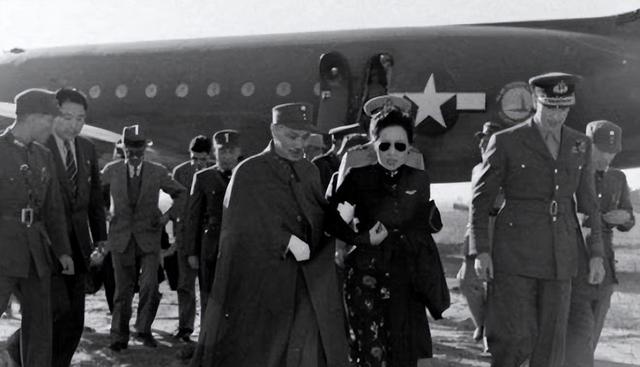
蒋介石战败退往台湾
So moving onto their third attempt. Since the Kuomingtang failed they needed American support more than ever to try and gain back their lost power. America gave them that support hoping there was something there. But at the same time America attacked Korea hoping that if they could conquer Korea (either directly or by establishing the southern regime as a puppet government) then they’d have another way into China. Of course we know this failed. Korea was split in half where America’s puppet regime in South Korea was bordered by North Korea which served as a buffer against invasion by US forces into China.
The fourth attempt was Vietnam. Same thing. America attacked hoping to set up a puppet regime with one group of Vietnamese while Ho Chi Minh the celebrated leader received help from China. The Vietnam War was even worse for America as not only did they not get their pupper regime set up but they flat out lost the war. It served as both humiliating for America who has since tried not to talk about it while being seen by the world over that even a China as weak as the one from that time was still strong enough to repel America.
After that America cooled off its attempts. It did try but it was much more subtle. The Taiwan Strait incidents were minor attempts that I’m sure they knew wouldn’t really work but it was just a way to keep China’s attention on being at war instead of rebuilding their wartorn country. America also started to turn enemies into allies with giving tons of support to Japan to rebuild their country. (After WWII America basically owned Japan anyway.) They also gave support to Communist Vietnam and the Phillippines and India all countries bordering China. Of course we know what happened with Japan. Just like Kuomingtang were too greedy for America to control Japan was too smart and used that support to build into the tech sector so fast that it started to overtake America’s tech sector. So America stopped support which caused the Japanese economy to tank which is where it has been ever since and then America went and supported Korea instead which is why Samsung and LG are so big right now.
所以继续他们的第三次尝试。自从国民党失败后,他们比以往任何时候都更需要美国的支持来试图夺回失去的权力。美国给了他们支持,希望那里能有所作为。但与此同时,美国攻击韩国,希望如果他们能够征服韩国(直接或通过建立南方政权作为傀儡政府),那么他们就有另一种方式进入中国。我们当然知道这失败了。韩国被一分为二,美国在韩国的傀儡政权与朝鲜接壤,朝鲜作为美国军队入侵中国的缓冲地带。
第四次尝试是越南。一样。美国发动进攻,希望与一群越南人建立傀儡政权,而著名的领导人胡志明则得到了中国的帮助。越南战争对美国来说更糟,因为他们不仅没有建立他们的傀儡政权,而且还彻底输掉了战争。这对美国来说既是一种羞辱,它也曾试图不谈论它,而在全世界看来,即使是像那个时代那样弱小的中国仍然强大到足以击退美国。
在那之后,美国冷却了它的尝试。它确实尝试过,但它更微妙。台海事件是一些小尝试,我相信他们知道不会真正奏效,但这只是一种让中国将注意力集中在战争而不是重建他们饱受战火的国家的方式。美国也开始将敌人变成盟友,并大力支持日本重建国家。(无论如何,二战后美国基本上拥有日本。)他们还支持共产主义越南以及菲律宾和印度所有与中国接壤的国家。我们当然知道日本发生了什么。就像国民党太贪心美国无法控制日本一样,日本太聪明了,利用这种支持迅速进入科技行业,以至于它开始超越美国的科技行业。
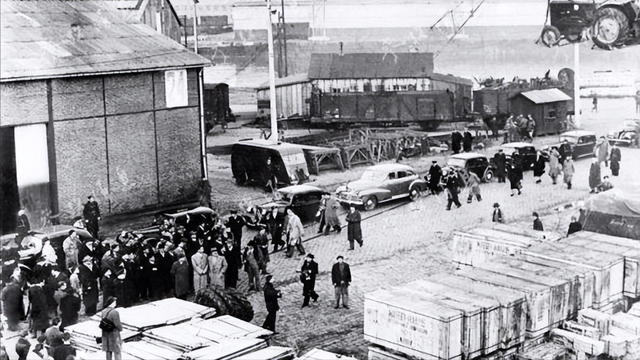
二战后美国扶持日本
All of this boiled down to a fifth attempt where the strategy was to destabilize China by supporting all the countries around it to point their fingers at it and cause it problems along every last border. You’d think that China would finally cave and be taken over right? But as we know China somehow became an economic powerhouse and poured its own support into neighboring countries. Against India it supported Pakistan, Nepal and Bhutan. Against Vietnam and the Phillippines it supported Cambodia and Singapore. Then it supported Duterte’s Phillippines making it an ally. Against Japan and South Korea it supported North Korea and allied itself with the Russian Federation. Now it also supports South Korea.
As America’s allies in the region started to lost ground against China’s influence America was forced to support them militarily straining it since it was also engaged in war in the Middle East by this point. Meanwhile China spread its influence by joining tons of global initiatives and programs and making friends even further away from home like Brazil, Mexico, Eastern Europe and Africa. Its economy grew so fast that even those set up by America to antagonize China started to play both sides. Japan for example keeps teetering between being enemies and friendly with China. One day its accusing China of stealing its territories and another its cultivating trade relations. India is building ties with China so much that the top tech brands selling in the country are Chinese. South Korea recently demanded America to remove THAAD or at the very least remove its military presence in the country with President Moon building stronger ties with North Korea and China.
After that America had to move into another phase of this attempt. Trade War. So since its influence in the region and now even around the world is declining and it is spending so much on the global war effort (Afghanistan, Iraq, Egypt, Syria, Iran, Kuwait, Israel, Libya ect…) America realized it was time for nuclear options. In a bid to damage China’s economic surge it thought that adding tariffs to all imports from China would work. When that didn’t it expanded those tariffs to all countries including its allies hoping that damaging their economies would force them to side with America against China. This worked better than adding tariffs to China but is still not nearly enough. First the tariff attacks against China worked against America. After a year of the Trade War America ended up with an additional $30 billion trade deficit on top of a giant plunge in exports to China and even more imports from China. American allies like the UK and Canada bent to its will a little but not really far enough and attacking its allies like this only alienated Germany, India, New Zealand, Japan and others.
所有这一切都归结为第五次尝试,其战略是通过支持中国周围的所有国家指责中国并在每一个边界造成问题来破坏中国的稳定。你会认为中国最终会屈服并被接管吗?但正如我们所知,中国不知何故成为了一个经济强国,并向邻国倾注了自己的支持。针对印度,它支持巴基斯坦、尼泊尔和不丹。针对越南和菲律宾,它支持柬埔寨和新加坡。然后它支持杜特尔特的菲律宾使其成为盟友。针对日本和韩国,它支持朝鲜并与俄罗斯联邦结盟。现在它也支持韩国。
随着美国在该地区的盟友开始在中国的影响力面前失去阵地,美国被迫支持他们,在军事上给它带来压力,因为此时它也在中东卷入战争。与此同时,中国通过加入大量全球倡议和项目并结交离家乡更远的巴西、墨西哥、东欧和非洲等朋友来扩大其影响力。它的经济增长如此之快,以至于连美国为对抗中国而设立的那些人也开始扮演双方的角色。例如,日本一直在与中国为敌和友好之间摇摆不定。一方面,它指责中国窃取其领土,另一方面指责中国发展贸易关系。印度正在与中国建立如此多的联系,以至于在该国销售的顶级科技品牌都是中国人。
在那之后,美国不得不进入这一尝试的另一个阶段。贸易战。因此,由于它在该地区乃至世界各地的影响力正在下降,并且在全球战争努力(阿富汗、伊拉克、埃及、叙利亚、伊朗、科威特、以色列、利比亚等)上花费了大量资金,美国意识到是时候了对于核选项。为了破坏中国的经济增长,它认为对所有从中国进口的商品加征关税会奏效。如果不是这样,它将这些关税扩大到包括其盟国在内的所有国家,希望损害他们的经济会迫使他们站在美国一边反对中国。这比对中国加征关税效果更好,但还远远不够。首先,针对中国的关税攻击对美国不利。经过一年的贸易战,除了对中国的出口大幅下降以及从中国进口的增加之外,美国最终还出现了 300 亿美元的贸易逆差。像英国和加拿大这样的美国盟友稍微屈服于自己的意志,但还不够远,像这样攻击其盟友只会疏远德国、印度、新西兰、日本和其他国家。

中美贸易战
So when America went another direction by targeting single Chinese companies like ZTE and now Huawei it really didn’t have anything to push with. When they banned ZTE what ended up happening was that American companies that had been selling to ZTE lost a huge chunk of their revenue since ZTE orders were all cancelled. On the other hand ZTE doubled down and teamed up with other Chinese companies to the point where it is still going strong and now isn’t banned because America needed to save their own companies. America tried more with Huawei but the first push against its leading 5G tech didn’t work. Even after it threatened its allies countries like the UK and Germany sided with Huawei anyway. The second push worked slightly better in that America just banned Huawei and extended that ban to include anything America sold to any company that might do business with Huawei. That forced companies like UK’s ARM to stop working with Huawei too. But all this did is slow Huawei down a little but it is still building 2/3s of the world’s 5G which will earn it a large profit and it also signalled to China to buy even less from America. Now you have Chinese companies like ARM rival TSMC helping Huawei and also MediaTek to create their own American component free products which are already outpacing the market leaders. In other words America’s fifth attempt is doing more to help China advance further and faster than if it hadn’t made any attempt at all.
因此,当美国转向另一个方向,针对像中兴和现在的华为这样的单一中国公司时,它真的没有什么可推动的。当他们禁止中兴通讯时,最终发生的事情是,由于中兴通讯订单全部取消,一直向中兴通讯销售的美国公司损失了巨额收入。另一方面,中兴加倍下注,与其他中国公司合作,直到现在它仍然很强大,现在没有被禁止,因为美国需要拯救他们自己的公司。美国对华为进行了更多尝试,但对其领先 5G 技术的第一次推动没有奏效。即使在它威胁到英国和德国等盟国之后,它仍然站在华为一边。第二次推动的效果稍微好一些,因为美国刚刚禁止了华为,并将禁令扩大到包括美国出售给任何可能与华为有业务往来的公司的任何东西。这也迫使英国 ARM 等公司停止与华为合作。但这一切只是让华为慢了一点,但它仍在建设全球 2/3 的 5G 网络,这将为其赚取巨额利润,同时也向中国发出信号,向美国发出更少购买的信号。现在你有像 ARM 竞争对手台积电这样的中国公司帮助华为和联发科创建自己的美国无组件产品,这些产品已经超过了市场领导者。换句话说,美国的第五次尝试,是在帮助中国走得更远、更快地前进,而不是完全没有尝试。但这一切只是让华为慢了一点,但它仍在建设全球 2/3 的 5G 网络,这将为其赚取巨额利润,同时也向中国发出信号,向美国发出更少购买的信号。现在你有像 ARM 竞争对手台积电这样的中国公司帮助华为和联发科创建自己的美国无组件产品,这些产品已经超过了市场领导者。换句话说,美国的第五次尝试,是在帮助中国走得更远、更快地前进,而不是完全没有尝试。但这一切只是让华为慢了一点,但它仍在建设全球 2/3 的 5G 网络,这将为其赚取巨额利润,同时也向中国发出信号,向美国发出更少购买的信号。现在你有像 ARM 竞争对手台积电这样的中国公司帮助华为和联发科创建自己的美国无组件产品,这些产品已经超过了市场领导者。换句话说,美国的第五次尝试,是在帮助中国走得更远、更快地前进,而不是完全没有尝试。现在你有像 ARM 竞争对手台积电这样的中国公司帮助华为和联发科创建自己的美国无组件产品,这些产品已经超过了市场领导者。换句话说,美国的第五次尝试,是在帮助中国走得更远、更快地前进,而不是完全没有尝试。现在你有像 ARM 竞争对手台积电这样的中国公司帮助华为和联发科创建自己的美国无组件产品,这些产品已经超过了市场领导者。换句话说,美国的第五次尝试,是在帮助中国走得更远、更快地前进,而不是完全没有尝试。
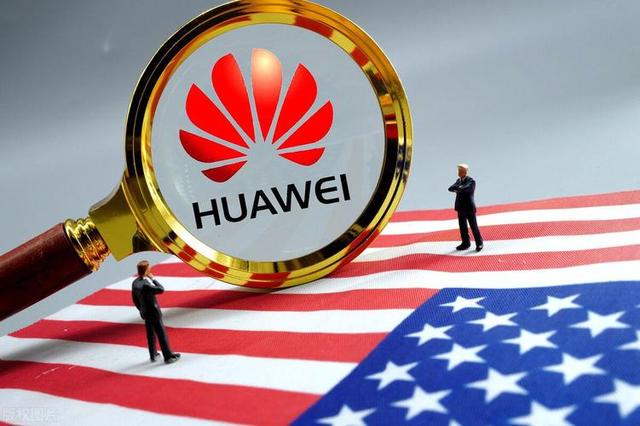
美国制裁华为
So America goes another way. Instead of just attacking economically or diplomatically or militarily it decides to use kidnapping. In December 2018 America used its influence over ally Canada to force it to capture Huawei executive Meng Wanzhou and detain her. This was a bid to force Huawei to give up and obey. But what ended up happening was that Huawei stood its ground and publicized the incident. Before this happened Huawei was hardly popular in the west. Most people only knew it as some mid-range low-quality tech company with an obvious Chinese name synonymous with poor quality and cheap prices. After the incident Huawei became a household name and support for the company reached unprecedented levels. When America expanded on the ban even more by stopping Google from providing its Android platform to it the world cheered for Huawei to release their Oak OS to break up the Android/iOS duopoly. Huawei’s become a folk hero.
So I’d say we could call America’s fifth attempt a failure too. The sixth attempt could likely be an Endgame for America. As its economy fails and its influence around the world wanes it might do the unthinkable and start a protracted nuclear war against China. Of course if it were to do this then all support around the world would immediately end and America would essentially be fighting a war against the entire world. So it would likely fail too. But we’ll see what that sixth attempt ends up being.
所以美国走另一条路。它决定使用绑架,而不是仅仅在经济、外交或军事上进行攻击。2018年12月,美国利用其对盟友加拿大的影响力,迫使其抓获华为高管孟晚舟并拘留她。这是为了迫使华为放弃和服从。但最终发生的事情是,华为站稳了脚跟,公开了这件事。在此之前,华为在西方几乎不受欢迎。大多数人只知道它是一些中档低质量的科技公司,中文名称明显是劣质低价的代名词。事件发生后,华为家喻户晓,对该公司的支持达到了前所未有的水平。当美国通过阻止谷歌向其提供 Android 平台来进一步扩大禁令时,全世界都为华为发布 Oak OS 以打破 Android/iOS 双头垄断而欢呼。华为成了民间英雄。
所以我想说我们也可以称美国的第五次尝试是失败的。第六次尝试可能是美国的终局之战。随着它的经济衰退和它在世界范围内的影响力减弱,它可能会做出不可想象的事情并开始对中国发动一场旷日持久的核战争。当然,如果这样做,那么世界各地的所有支持将立即结束,美国基本上将与整个世界进行一场战争。所以它也可能会失败。但我们会看到第六次尝试的结果。

美国拘留孟晚舟






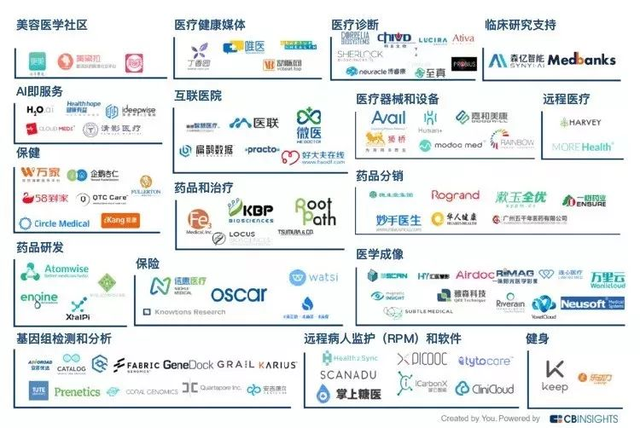















评论